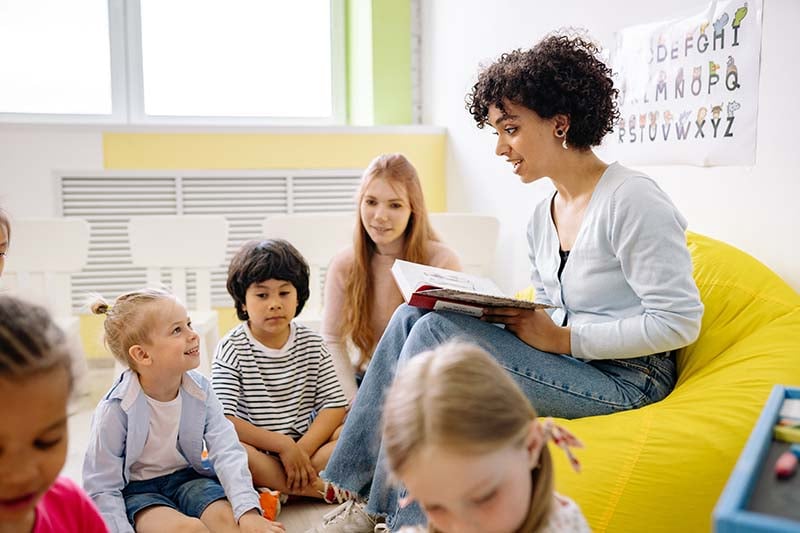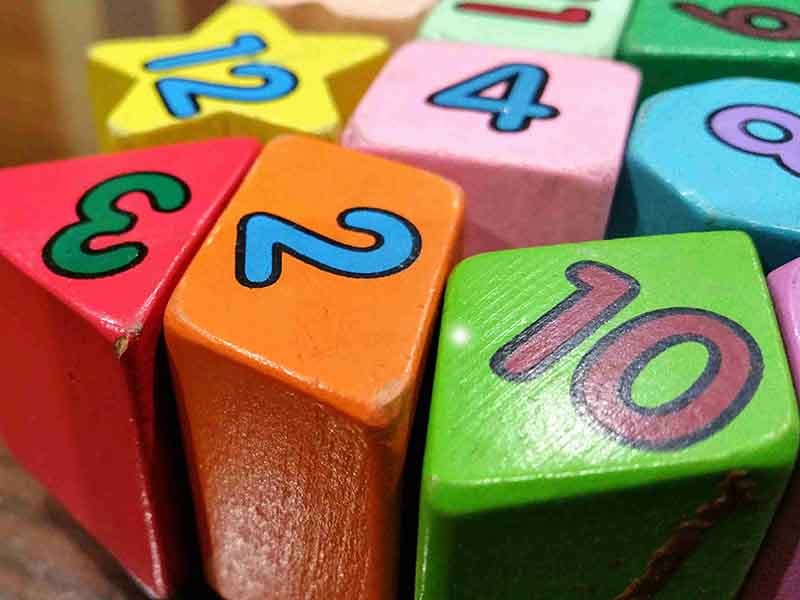
Transitioning to sixth grade is a significant milestone in your child's education. It's a time of increased responsibilities and a deeper dive into challenging subjects. Preparing your rising sixth grader academically and emotionally is crucial to ensure a smooth transition.
- Developing Study Habits:
When entering sixth grade, children should be able to manage their time effectively and work independently on assignments. Encouraging your child to set aside specific time for homework and studying can help them develop sustainable study habits.
- Development of Academic Skills:
Sixth graders must have a solid knowledge of basic math, reading, and writing skills. Children can develop these skills by incorporating educational activities into their daily routines. For example, using flashcards or apps to practice math can be a good idea. Daily reading and discussion can improve understanding skills. Encouraging your child to journal can improve their writing.
- Promoting a Growth Mindset:
Fostering a growth mindset can help your child handle academic challenges with resilience and a positive attitude. Encourage them to view mistakes as learning opportunities and persevere in challenging situations. Praising their efforts, not just their achievements, can motivate them to strive to improve.
Here is an example checklist of what your child needs to know before starting sixth grade.
What Your 6th Grader Should Know
6th Grade Math
Sixth-grade math introduces students to more complex concepts and helps them be ready for future explorations in mathematics. Here's what your sixth grader will learn:
1. Understand and perform operations with positive and negative numbers.2. Adding, subtracting, multiplying, and dividing decimals.
3. Finding a common denominator
4. Learning to find the reciprocal of a fraction
5. Writing and comparing ratios
6. Understanding and solving proportions (equal ratios)
7. Converting percentages to fractions and decimals
8. Calculate the perimeter and area of various figures, including complex figures.
9. Finding the volume of rectangular prisms and volumetric figures.
10. View ordered pairs and plot them on the coordinate plane.
11. Understanding the four quadrants and solving coordinate problems
12. Finding the mean, median, mode, and range of data sets
Tips For Parents
- Encourage your child to solve math problems regularly to strengthen their understanding.
- Use real-life examples, such as cooking measurements or budgeting, to clarify the math.
- For additional practice, provide resources such as math apps or online games.
- Discuss homework and help your child solve difficult problems.
- Create a study schedule to ensure consistent practice and repetition.
6th Grade Reading and Reading Comprehension
Sixth-grade reading improves students' understanding and analysis of literary and non-fiction texts. Here's what your sixth grader will learn:
13. Recognize and use features such as glossaries, indexes, tables of contents, and captions to understand and organize information.
14. Identify the setting, plot, climax, characters, point of view, conflict, resolution, and theme of fiction stories.
15. Using strategies such as identifying and connecting the main idea to the text to improve comprehension.
16. Understand the use of tone, mood, dialogue, flashbacks, foreshadowing, and allusions in writing.
17. Analysis of similes, metaphors, personification, alliteration, onomatopoeia and hyperbole.
18. Learn new forms such as idioms, proverbs, proverbs, and oxymorons.
19. Identify figurative language in texts and write your examples.
20. Practice comprehension through passages and stories on various topics.
21. Summarize and paraphrase texts in responses.
Tips for Parents
- Encourage daily reading and discussion of the content.
- Offer different texts, including fiction and non-fiction.
- Practice identifying and using features of a popular science text.
- Discuss and analyze various literary elements and authorial tools.
- Use figurative language in everyday conversations to reinforce learning.
- Encourage your child to write summaries and responses to what they read.
6th Grade Writing
Sixth-grade writing develops strong, structured writing skills that students will use throughout their academic years. Here's what your sixth grader will learn:
22. Write a strong introduction with a hook and thesis statement.23. Develop coherent body paragraphs with topic sentences and evidence.
24. Conclude by summarizing the argument and restating the thesis.
25. Express personal opinion using a five-paragraph structure.
26. Convince readers of their position through researched facts and structured arguments.
27. Write research-based essays that provide factual and objective information.
28. Create stories with well-developed plots, settings, and characters.
29. Write about personal experiences using descriptive language.
30. Combine reading comprehension and writing skills to analyze complex quotes.
Tips for Parents
- Encourage regular writing practice at home using journals or writing prompts.
- Discuss and review the five-paragraph essay structure to consolidate understanding.
- Give your child the opportunity to write different types of essays and stories.
- Use new words in daily conversations to help them remember and use them in writing.
- Offer constructive feedback on their writing to help them improve their skills.
6th Grade Social Studies
Social studies in sixth grade introduces students to different aspects of history, geography, and culture, helping them understand the world and their place in it. Here's what your sixth grader will learn:
31. The study of ancient civilizations and their contributions to modern society.32. Study key historical events and figures and understand their impact on the present.
33. Read and interpret physical, political, and thematic maps.
34. Understand geographic terms and concepts such as latitude, longitude, and time zones.
35. Understand the rights and responsibilities of citizens in a democratic society.
36. Develop skills in researching historical and contemporary events using a variety of sources.
37. Analyze and evaluate information to form sound conclusions and arguments.
Tips for Parents
- Discuss current events and historical topics to enhance understanding.
- Visit museums, historical sites, or cultural festivals for real-life learning experiences.
- Use maps and globes at home to practice geography skills.
- Help your child with research projects by directing them to credible sources.
- Encourage your child to ask questions and think critically about the information they are learning.
6th Grade Science
Science in the sixth grade develops a deeper understanding of scientific concepts and the natural world through inquiry. Here's what your sixth grader will learn:
38. Understand and apply the scientific method, including forming hypotheses, conducting experiments, and analyzing data.39. Develop skills to observe, ask questions, and draw conclusions based on evidence.
40. Study of ecosystems, food chains, and interdependence of organisms.
41. Understanding the structure and function of cells and the basics of genetics.
42. Study the principles of matter, including states of matter, properties, and changes.
43. Understand the basics of energy, forces, and motion and how they interact in the physical world.
44. Participate in hands-on projects and experiments to apply scientific concepts in practice.
Tips for Parents
- Encourage curiosity and exploration by providing opportunities for hands-on experimentation at home.
- Discuss scientific concepts in everyday life, such as cooking (chemical reactions) or gardening (plant biology).
- Visit science museums, nature reserves, and planetariums to enhance your learning experience.
- Support your child in science projects or other extracurricular science activities.
6th Grade Social Skills and Abilities
Sixth grade is crucial for developing social skills and abilities that help students navigate relationships and interact effectively with others. Here's what your sixth grader will learn:
45. Practice active listening and clear, respectful speech.46. Work effectively in a group, distribute responsibilities, and value each team member's contribution.
47. Learning to work together on projects and tasks, developing a sense of community and teamwork.
48. Develop strategies for self-discipline, time management, and goal setting.
Tips for Parents:
- Encourage open communication at home by creating a safe space for your child to express himself.
- Encourage group activities, clubs, or sports participation to promote teamwork and cooperation.
- Discuss the importance of respecting diversity and inclusion and encourage your child to stand up to bullying and exclusion.
Genie Academy offers after-school learning programs in math, reading, writing, and coding for preschool through 9th-grade students. Our programs are conveniently located throughout New Jersey, including Plainsboro, Hillsborough, East Brunswick, South Brunswick, South Plainfield, and Marlboro. Our programs are designed to meet the needs of each student. If you want a math tutor in Plainsboro or want to prepare your child for kindergarten, contact us today to schedule a free assessment.
Read the Rest of the Series!
Have multiple children in multiple grades? Read the rest of the series!
- 21 Things Your Child Should Know Before Entering Kindergarten
- 45 Things Your Child Should Know Before Entering First Grade
- 45 Things Your Child Should Know Before Entering Second Grade
- 43 Things Your Child Should Know Before Entering Third Grade
- 48 Things Your Child Should Know Before Entering Fourth Grade
- 49 Things Your Child Should Know Before Entering Fifth Grade
- 48 Things Your Child Should Know Before Entering Sixth Grade
- 48 Things Your Child Should Know Before Entering Seventh Grade
- 42 Things Your Child Should Know Before Entering Eighth Grade
- 37 Things Your Child Should Know Before Entering Ninth Grade





